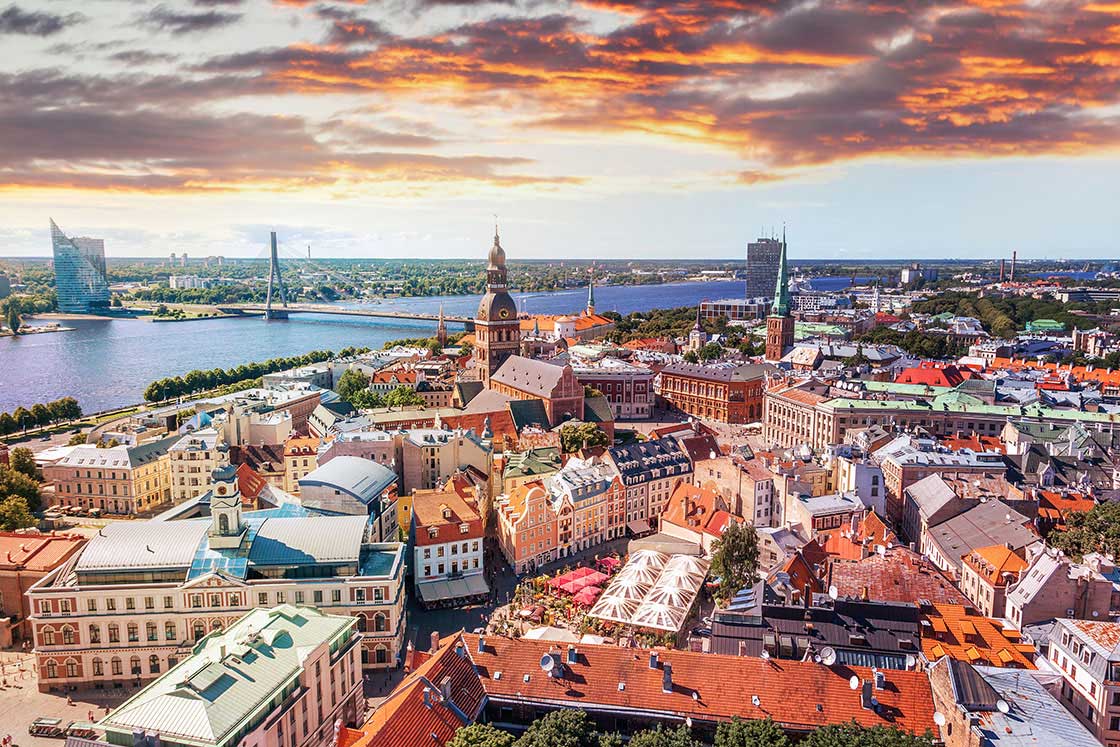


Riga is the capital of Latvia. Located on the Baltic Sea at the mouth of the Daugava River, it is the largest city in the Baltic Republics and is one of the main cultural, political and economic centers of the region. Riga is home to wooden or Art Nouveau buildings, a large central market and the old town from the Middle Ages, with the church of St. Peter. The city's museums include the Latvian Ethnographic Museum in the open, focusing on craftsmanship, gastronomy and music. Ancient center of the Hanseatic league, the city is twinned with Florence and Bremen. In 2001 it hosted the European Cultural Month together with Basel, while in 2014 it was European Capital of Culture alongside the Swedish Umeå.

The city of Riga was founded on August 18, 1201 by the German bishop Albrecht von Buxthoeven, who came from Bremen to evangelize and Germanize Livonia, a region inhabited by pagan Baltic populations. The city experienced a period of great splendor during the thirteenth century, thanks to the entry into the Hanseatic League. In their expansion plan, the German clergy was supported by the Livonian order of the Sword-carrying Knights first and then by the Teutonic Order, until they controlled the entire territory from Riga, which corresponds to today's Latvia. Soon, however, the Germanic factions competed with each other for dominion over the region and ended up weakening each other. Subsequently the city belonged to the Swedes from 1621 to 1710, then it was conquered by Russia following a bitter war. Riga's importance to the Tsarist empire grew over time, becoming one of Russia's main ports. In this period of great internal migrations the Germans ended up becoming a minority towards Russians and Latvians, but managed to maintain the most prestigious social and political positions.
Riga
Address: 1000, Lettonia
Phone:
Site:
Location inserted by
Culturalword Abco